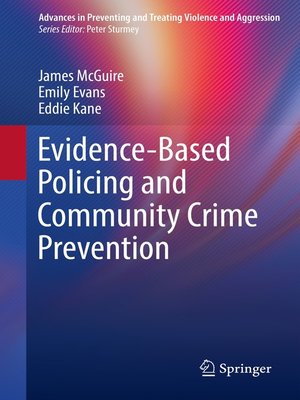Evidence-Based Policing and Community Crime Prevention
ebook ∣ Advances in Preventing and Treating Violence and Aggression
By James McGuire

Sign up to save your library
With an OverDrive account, you can save your favorite libraries for at-a-glance information about availability. Find out more about OverDrive accounts.
Find this title in Libby, the library reading app by OverDrive.



Search for a digital library with this title
Title found at these libraries:
| Library Name | Distance |
|---|---|
| Loading... |
This book addresses and reviews progress in a major innovative development within police work known as evidence-based policing. It involves a significant extension and strengthening of links between research and practice and is directed to the task of increasing police effectiveness in the field of community crime prevention. This volume provides an international perspective that synthesizes recent research results from the United States and other countries – including systematic reviews of large bodies of evidence – to illuminate several of the most challenging issues currently confronting police departments. It examines recent advances in research-based models of policing and the expanding base in outcome evaluation.
Key areas of coverage include:
In addition, each chapter presents an overview of key issues within a designated area, synthesizes existing reviews, and examines the most recent research. The book clearly and concisely presents major concepts, theories, and research findings, thereby providing both conceptual and analytic tools alongside an integrated presentation of principal findings and messages. The volume concludes with a discussion of current directions in research, key developments in policing strategies, and identification of effective operational structures for facilitating and sustaining research-practice links.
Evidence-Based Policing and Community Crime Prevention is a must-have resource for researchers, clinicians and other professionals, and graduate students in forensic psychology, criminology and criminal justice, public health, developmental psychology, psychotherapy and counseling, psychiatry, social work, educational policy and politics, health psychology, nursing, and behavioral therapy/rehabilitation.







